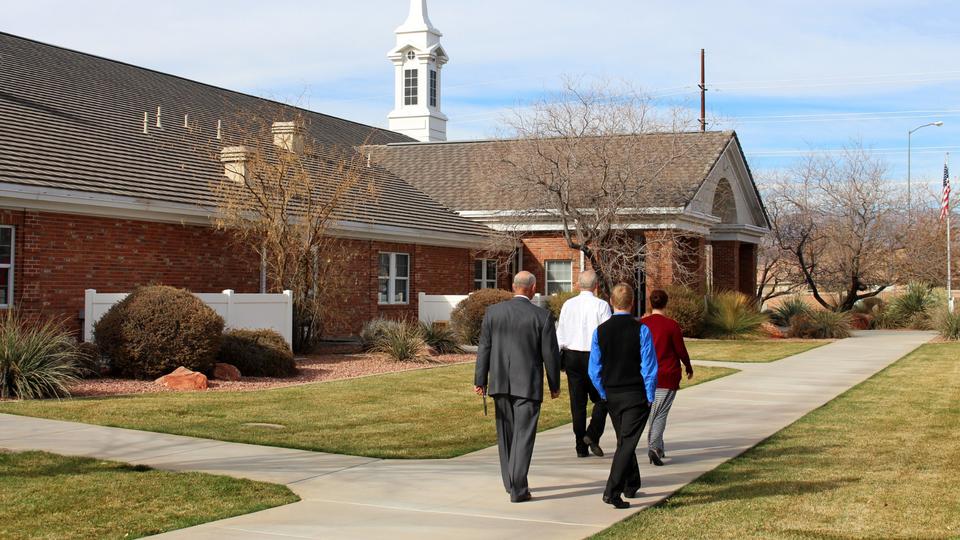Have you ever felt overwhelmed by the demands of a church calling while managing personal responsibilities? Service is a core part of faith for members of the Church of Jesus Christ of Latter-Day Saints (LDS). From fulfilling callings to supporting ward activities, serving others often brings joy and spiritual growth. However, when combined with the pressures of family, work, and personal life, it can also lead to stress.
Balancing church responsibilities with personal well-being is crucial for sustaining emotional, physical, and spiritual health. In this article, we’ll explore how to manage the pressures of church service, recognize the signs of burnout, set healthy boundaries, and prioritize mental health while fulfilling your callings.
The Importance of Church Service in LDS Culture
Service is deeply rooted in LDS teachings and culture. From early morning seminary teaching to planning ward events, church members often dedicate countless hours to serving others.
- The Value of Callings: Serving in the church offers many benefits, including fostering a sense of belonging, building relationships, and contributing to the Lord’s work. The scriptures emphasize the importance of service: “When ye are in the service of your fellow beings, ye are only in the service of your God” (Mosiah 2:17). These opportunities to serve uplift others and strengthen personal faith.
- The Potential for Becoming Overwhelmed: While fulfilling, church service can become overwhelming, particularly for those in leadership roles or demanding callings. For example, planning ward events, managing the Relief Society, or serving as a bishop may require significant time and energy, creating stress and feelings of inadequacy.
Recognizing the value of service while addressing its challenges is the first step in maintaining balance.

Recognizing the Signs of Burnout
Burnout is a state of physical, emotional, and spiritual exhaustion caused by prolonged stress. It can occur even in spiritual service when responsibilities feel unmanageable.
- What is Burnout? Burnout is characterized by feelings of fatigue, detachment, and reduced effectiveness. For church members, it might manifest as losing enthusiasm for a calling or resenting responsibilities.
- Common Signs of Burnout:
- Physical Symptoms: Fatigue, headaches, or difficulty sleeping.
- Emotional Symptoms: Feeling overwhelmed, irritable, or disconnected from the joy of service.
- Spiritual Symptoms: Feeling distant from God, doubting your capacity to serve, or losing motivation for church activities.
- Why It’s Important to Address Burnout: Ignoring burnout can negatively impact your health, relationships, and ability to serve effectively. Acknowledging and taking proactive steps to address these feelings can help restore balance.
Setting Boundaries Without Guilt
Setting boundaries is essential for maintaining well-being and avoiding burnout. However, feeling guilty about saying “no” to additional responsibilities is common.
- Understanding Boundaries in Service: Boundaries aren’t about avoiding responsibilities but ensuring you can serve effectively without compromising your health. In his talk “Lift Where You Stand,” Elder Dieter F. Uchtdorf reminds us that service doesn’t require perfection—it requires effort within our means.
- How to Set Healthy Boundaries:
- Communicate Clearly: Speak openly with leaders about your availability and capacity to serve.
- Be Honest About Time Constraints: Remember, it’s okay to decline additional tasks if your schedule is already full.
- Delegate When Possible: Share responsibilities with others to reduce your workload.
- Overcoming Guilt About Boundaries:
- Remember that taking care of yourself enables you to serve more effectively.
- Reflect on the “seasons of life” principle—different stages may allow for varying levels of service, and that’s okay.
By setting boundaries, you create space for self-care while remaining committed to meaningful service.
Practical Tips for Balancing Church Responsibilities and Personal Well-Being
Balancing church responsibilities and personal life requires intentional planning and self-care. Here are practical strategies to maintain harmony:
- Prioritize Self-Care:
- Physical Health: Ensure you get enough sleep, eat nutritious meals, and exercise regularly.
- Emotional Health: Take time for hobbies, relaxation, or activities that rejuvenate your mind and spirit.
- Spiritual Health: Maintain your personal relationship with God through prayer, scripture study, and reflection outside of church responsibilities.
- Time Management:
- Use a planner or calendar to schedule church commitments, family time, and personal activities.
- Set realistic goals for what can be accomplished within a week.
- Learn to say “no” to non-essential tasks that add unnecessary stress.
- Ask for Support:
- Seek help from family members, ward members, or fellow leaders when tasks feel overwhelming.
- Recognize that teamwork strengthens the ward and lightens individual burdens.
- Reflect and Reassess:
- Regularly evaluate how your responsibilities impact your well-being. Are you feeling energized or drained? Adjust your commitments as needed.
- Use personal prayer to seek guidance about prioritizing tasks and responsibilities.
Implementing these strategies can help you serve with joy while preserving your mental and physical health.

When to Seek Professional Support
Sometimes, balancing church responsibilities with your personal life requires outside help. Therapy or counseling can provide tools to manage stress and build resilience.
- Recognizing the Need for Help:
- Persistent stress, difficulty functioning, or hopelessness are signs that professional support may be beneficial.
- Therapy can help you process emotions, manage time effectively, and establish healthy boundaries.
- How Therapy Can Help:
- A faith-informed therapist can incorporate LDS principles into sessions, ensuring alignment with your values.
- Therapy provides a safe space to explore feelings of burnout or guilt and develop strategies for self-care.
- Encouraging Proactive Steps:
- Seeking help is a sign of strength, not weakness. Addressing mental health challenges early can prevent long-term issues.
Finding Joy in Service Without Sacrificing Well-Being
Service should be a source of joy and spiritual growth, not a burden. Here’s how to reframe your approach to callings and responsibilities:
- Reframing Service:
- Focus on small, meaningful acts of service rather than trying to do everything perfectly.
- Simplify tasks and collaborate with others to lighten the load.
- Trusting in Divine Guidance:
- Rely on God’s promise of support and strength. Isaiah 41:10 reminds us, “Fear thou not; for I am with thee: be not dismayed; for I am thy God: I will strengthen thee.”
- Trust that the Lord understands your efforts and values your well-being.
You can find fulfillment without overextending yourself by serving with intention and relying on divine guidance.
Conclusion
Balancing church responsibilities with personal well-being is essential for sustaining emotional, physical, and spiritual health. By recognizing the signs of burnout, setting healthy boundaries, and prioritizing self-care, you can fulfill your callings effectively without sacrificing your mental health.
Take a step today to create balance—whether it’s saying “no” to an additional task, delegating responsibilities, or carving out time for rest. Remember, the Lord sees and values your efforts, and He desires your joy and well-being as much as your service.
Through thoughtful planning, intentional self-care, and faith, you can serve with strength and find joy in the journey.
Here are some additional articles you may find helpful:
- The Pillars of Personal Growth: Building a Strong Mental Health Foundation
- Overcoming Perfectionism Through Grace-Filled Counseling
- Understanding Anxiety Disorders: A Comprehensive Guide for Clients
Online Therapy in Florida, Idaho, South Carolina, and Utah
At Calming Transformations Counseling, our therapists understand how difficult it can be to manage anxiety, stress, depression, and relationship issues. We can help through online therapy in Florida, Idaho, South Carolina, or Utah or walk and talk therapy in Hillsborough County, Florida. Book an appointment or contact us today to schedule a session and take the first step toward a healthier, happier life. Remember, your mental health is important—take the time to care for yourself.
